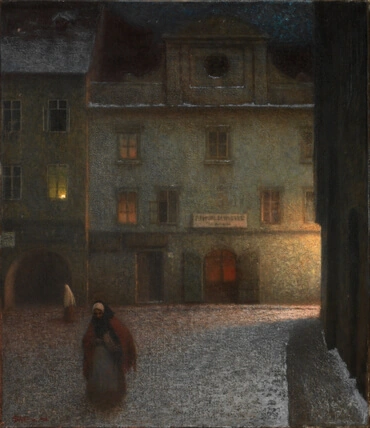1
Sara war hundertsiebenundzwanzig Jahre alt
2
und starb in der Hauptstadt, die heißt Hebron, im Lande Kanaan. Da kam Abraham, daß er sie klagete und beweinete.
3
Danach stund er auf von seiner Leiche und redete mit den Kindern Heths und sprach:
4
Ich bin ein Fremder und Einwohner bei euch; gebet mir ein Erbbegräbnis bei euch, daß ich meinen Toten begrabe, der vor mir liegt.
5
Da antworteten Abraham die Kinder Heths und sprachen zu ihm:
6
Höre uns, lieber HERR! Du bist ein Fürst Gottes unter uns; begrabe deinen Toten in unsern ehrlichsten Gräbern; kein Mensch soll dir unter uns wehren, daß du in seinem Grabe nicht begrabest deinen Toten.
7
Da stund Abraham auf und bückte sich vor dem Volk des Landes, nämlich vor den Kindern Heths.
8
Und er redete mit ihnen und sprach: Gefällt es euch, daß ich meinen Toten, der vor mir liegt, begrabe, so höret mich und bittet für mich gegen Ephron, dem Sohn Zoars,
9
daß er mir gebe seine zwiefache Höhle, die er hat am Ende seines Ackers; er gebe mir sie um Geld, soviel sie wert ist, unter euch zum Erbbegräbnis.
10
Denn Ephron wohnete unter den Kindern Heths. Da antwortete Ephron, der Hethiter, Abraham, daß zuhöreten die Kinder Heths, vor allen, die zu seiner Stadt Tor aus und ein gingen, und sprach:
11
Nein, mein HERR, sondern höre mir zu. Ich schenke dir den Acker, und die Höhle drinnen dazu, und übergebe dir's vor den Augen der Kinder meines Volks, zu begraben deinen Toten.
12
Da bückte sich Abraham vor dem Volk des Landes
13
und redete mit Ephron, daß zuhörete das Volk des Landes, und sprach: Willst du mir ihn lassen, so bitte ich, nimm von mir das Geld für den Acker, das ich dir gebe, so will ich meinen Toten daselbst begraben.
14
Ephron antwortete Abraham und sprach zu ihm:
15
Mein HERR, höre doch mich! Das Feld ist vierhundert Sekel Silbers wert; was ist das aber zwischen mir und dir? Begrabe nur deinen Toten.
16
Abraham gehorchte Ephron und wog ihm das Geld dar, das er gesagt hatte, daß zuhöreten die Kinder Heths nämlich vierhundert Sekel Silbers, das im Kauf gang und gäbe war.
17
Also ward Ephrons Acker, darin die zwiefache Höhle ist, gegen Mamre über, Abraham zum eigenen Gut bestätiget, mit der Höhle darinnen und mit allen Bäumen auf dem Acker umher,
18
daß die Kinder Heths zusahen und alle, die zu seiner Stadt Tor aus und ein gingen.
19
Danach begrub Abraham Sara, sein Weib, in der Höhle des Ackers, die zwiefach ist, gegen Mamre über, das ist, Hebron, im Lande Kanaan.
20
Also ward bestätiget der Acker und die Höhle darinnen Abraham zum Erbbegräbnis von den Kindern Heths.







